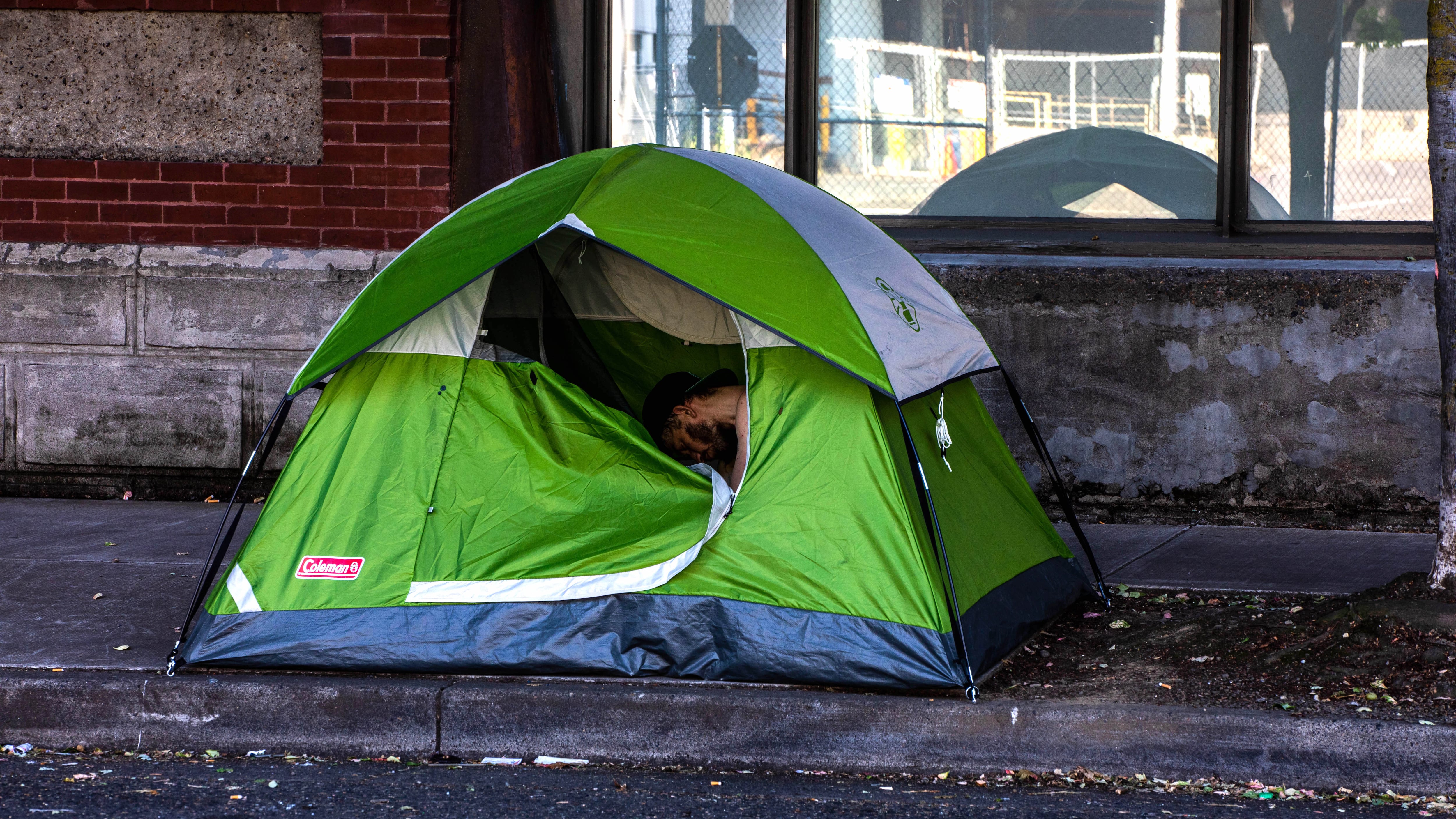WW has learned that Portland Mayor Ted Wheeler plans next week to announce a sweeping strategy to ban unsanctioned camping across the city and build three massive sanctioned camping areas, called “campuses,” each with capacity for 500 people.
Each campus would be divided into four camps with a 125-person capacity. The city intends to fill one of each of the 125-person camps in each of the three campuses, and then expand from there. The city will seek to hire an outside contractor to run the three campuses.
Campus sites have not yet been confirmed, nor has the funding.
If actually enforced, the ban would signal a massive public policy shift for the city, effectively ending a policy of allowing people to sleep on sidewalks that has existed since then-Mayor Charlie Hales sanctioned camping in 2016.
Currently, the city and county do not have adequate shelter space to accommodate everyone sleeping on city streets. Because of the Martin v. Boise ruling by the 9th U.S. Circuit Court, cities cannot arrest homeless campers if there is not adequate shelter to offer them. If the mayor’s plan comes to fruition, the city would likely be allowed to issue criminal citations to people who are living on the streets.
Sources tell WW the plan is just one aspect of a broader initiative by the mayor’s office to address the housing and homelessness crisis; another component is establishing aggressive targets for the construction of affordable housing.
Many details remain unclear about the mayor’s plan: what enforcement mechanism—if any—would be used to enforce the ban, where funding would come from for the sanctioned camping areas (the mayor’s office is courting all three gubernatorial candidates, hoping to get state money from the next legislative session), and how the camps would function.
The plan is akin to the top-line item on a blueprint plan mayoral aide Sam Adams shared with elected officials earlier this year, floating the idea of building 1,000-capacity shelters with the end goal of banning unsanctioned camping. While the plan was widely denounced, the mayor has incrementally implemented portions of Adams’ plan over the past eight months, incuding emergency orders to ban camping around schools and along high-crash corridors.
The timing of the mayor’s announcement is also significant: It is scheduled to occur the same week ballots arrive in voters’ mailboxes. Democratic candidate for governor Tina Kotek is struggling in the polls, and the sight of large camps along Portland highways is a political millstone for her and other statewide Dems in tight contests.
All three gubernatorial campaigns have been briefed on Wheeler’s plan.
Another thing to keep in mind: Last month, 10 Portlanders with disabilities sued the city of Portland, alleging that tent camping was blocking public access protected under the Americans with Disabilities Act. In September, as WW reported yesterday, Portland city attorneys asked the lawyer representing the plaintiffs to also name Multnomah County, Metro and the state as additional defendants in the lawsuit.
That’s because if the judge grants the plaintiff’s requests, the city will be forced to remove all tents from the sidewalks and build enough shelter capacity to house all homeless Portlanders. That’s an expensive project—and the city of Portland doesn’t want to foot the bill alone.
